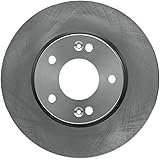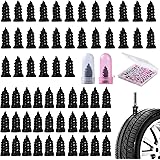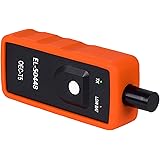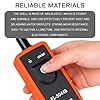Table of Contents
Navigating the aftermath of a car accident can be overwhelming, especially when your car is totaled. What happens when your car is declared a total loss, but it’s still drivable? This article explores the definition of a total loss, how insurance companies determine the value of a totaled vehicle, and the implications of driving a totaled car.
Understanding Total Loss and Totaled Vehicles
What is a Total Loss?
A total loss, or a totaled vehicle, occurs when the repair costs after a car accident, combined with the salvage value, exceed the actual cash value or market value of the car. In other words, insurance companies decide that the extent of the damage is so significant that it’s no longer financially feasible to repair it. The value of the car before the accident significantly influences this determination. If the car is worth less than the repair costs, it is considered a total loss.
How Insurance Companies Determine Total Loss Value
Insurance companies determine the total loss value by assessing the actual cash value of the vehicle immediately before the car accident. This involves considering factors like the car’s age, mileage, condition, and any prior damage. They also evaluate the estimated repair costs and the car’s potential salvage value if it were to be sold to a salvage yard. The insurance payout is typically based on this calculated value, less any deductible, as outlined in the insurance policy. An experienced car accident attorney can help ensure a fair assessment.
Factors Influencing the Total Loss Threshold
Several factors influence whether a car is declared a total loss. These include the state’s total loss threshold, which specifies the percentage of the car’s value that repair costs must exceed for it to be considered totaled. The car’s age and condition also play a significant role. Additionally, the availability and cost of parts, as well as labor rates, can impact the repair estimates and ultimately affect the decision to total a car, making it a totaled vehicle.
Can You Drive a Totaled Car?
Determining Total Loss Value
When an insurance company determines that a vehicle meets the criteria to be declared a total loss, they embark on a process to establish its actual cash value just prior to the car accident. This involves a thorough assessment of numerous factors, including the vehicle’s age, mileage, overall condition, and any pre-existing damage. The insurance companies research the market value of similar vehicles in the area to ensure an accurate valuation for the auto insurance claim. If the car is totaled, the insurance company will pay out the determined actual cash value, less any deductible. However, if you feel that the insurance payout is insufficient, you should consult a car accident attorney.
Considerations for Driving a Totaled Vehicle
Deciding whether to drive a totaled car can be complex. If the car is totaled but still drivable, it’s crucial to understand the risks and legal implications. Driving a totaled but drivable car often requires obtaining a salvage title. Securing insurance coverage for a car with a salvage title can be more challenging and expensive. Some insurance companies might be hesitant to provide full coverage. There could be limitations on the types of coverage available. Before you drive a totaled vehicle, make sure to consult a car accident attorney.
What Happens When Your Car is Totaled
Signs Your Car is Considered Totaled
Several indicators suggest that your car might be considered a totaled vehicle after a car accident. If the repair estimates approach or exceed the actual cash value of the car before the accident, the insurance company will pay the market value. Extensive structural damage, such as a bent frame or severely compromised safety features, also increases the likelihood of a total loss declaration. The age and condition of the car play a significant role, as older vehicles with pre-existing issues are more susceptible to being deemed totaled. The extent of the damage will determine if the car is totaled.
The Process of Declaring a Total Loss
The process of declaring a total loss typically begins after a car crash when the insurance company assesses the damage to the vehicle. An appraiser evaluates the repair costs and compares them to the car’s actual cash value. If the repair costs, plus the car’s salvage value, exceed a certain threshold (often determined by state law), the insurance company declares the car totaled. They then offer a settlement based on the car’s pre-accident value, minus any deductible. If the car is declared a total loss, the insurance company will pay out a total loss settlement, and the owner can then decide to keep the car and get a salvage title.
What to Expect After Your Car is Totaled
After your car is declared a total loss, several things will happen. The insurance company will pay out the actual cash value of the vehicle, minus your deductible, if you decide to release the car to them. You’ll also receive information about your options for a totaled car. You can either accept the insurance payout and transfer ownership of the vehicle to the insurance company, or you can decide to keep the car and receive a reduced payout. If you decide to keep the totaled vehicle, you will receive an insurance payout reduced by the car’s salvage value, and the insurance company would issue a salvage title.
Options for a Totaled Car
Keep a Totaled Car: Pros and Cons
Deciding whether to keep a totaled car presents a trade-off between potential cost savings and inherent risks. You receive a reduced insurance payout, reflecting the vehicle’s salvage value. This could enable you to repair it, potentially saving money compared to buying a new car. However, the car with a salvage title might require extensive repairs to ensure it’s safe and roadworthy. Additionally, securing auto insurance coverage for a totaled car can be challenging, as insurance companies may view it as a higher risk. Before you keep a totaled car, it is important to consult a car accident attorney.
Driving a Totaled Vehicle: Is it Safe?
Driving a totaled but drivable car raises significant safety concerns. Even if the car is still drivable, the extent of the damage from the car accident could have compromised its structural integrity and safety features, making it a drivable totaled vehicle. Airbags might not function properly, and the frame could be weakened, increasing the risk of injury in a subsequent car crash. Insurance companies may have stricter requirements for insuring a car with a salvage title. Before you drive a totaled car, make sure it is safe. If you decide to keep your totaled car, consult a car accident attorney.
Options for Selling or Repairing a Totaled Car
If you decide to keep a totaled car, you have several options. One is to repair the car and obtain a rebuilt title, which involves meeting specific inspection requirements to ensure the vehicle is safe. Another option is to sell the car to a salvage yard or private buyer. A salvage yard may be interested in the vehicle for parts or scrap metal. If you don’t want to keep the car, you can simply let the insurance companies take the car. Consult a car accident attorney before you make a decision.
Financial Implications of a Totaled Car
What Happens When You Still Owe Money on a Totaled Car?
If you still owe money on a car loan when your car is totaled, the insurance payout will first go towards paying off the outstanding loan balance. If the payout is less than the remaining loan amount, you will still be responsible for paying the difference, which is known as a deficiency balance. If you are in this situation, consult a car accident attorney to help you navigate this difficult situation and explore your options. You will need to assess your finances and decide whether to keep the car.
Understanding Your Insurance Payout Options
When your car is declared a total loss, understanding your insurance payout options is crucial. You have two main choices: accept the insurance company’s settlement offer and transfer ownership of the car to them, or keep the car and receive a reduced payout reflecting its salvage value. If you believe the insurance company’s offer is too low, you can negotiate with the insurance company or seek an independent appraisal to determine the car’s actual cash value. You should also be aware of any deductions, such as your deductible, that will be subtracted from the insurance payout. Consult a car accident attorney for assistance.
Consulting a Car Accident Attorney: When to Seek Help
Consulting a car accident attorney is advisable in several situations following a car accident. If you believe the insurance company is undervaluing your totaled vehicle or denying your insurance claim, an experienced car accident attorney can help you negotiate a fair settlement. Additionally, if the accident involved injuries or complex legal issues, such as determining fault, a car accident attorney can protect your rights and guide you through the legal process. It is crucial to consult a car accident attorney if the insurance company will not pay out what the car is worth, or if you decide to keep the car.
Why Do Insurance Companies Total Drivable Cars?
Insurance companies often declare a vehicle a total loss, even when the car is still drivable, due to financial considerations. The primary reason is that the cost to repair the vehicle to its pre-car accident condition exceeds a certain percentage of its actual cash value. This percentage, known as the total loss threshold, varies by state. When the repair costs, coupled with the salvage value, surpass this threshold, the insurance companies deem it more economical to total a car and provide a payout to the policyholder rather than fund extensive repair work. This decision is driven by the market value of the vehicle, the extent of the damage, and the associated insurance coverage costs. The insurance company will pay the value of the car and take possession of the totaled vehicle.
The Total Loss Threshold: When Is a Car Considered Totaled?
The total loss threshold is a critical factor in determining when a car is declared a total loss. This threshold, which is defined by each state, represents the percentage of the vehicle’s actual cash value that the repair costs must exceed for the insurance companies to declare the car totaled. For example, if a state’s threshold is 75% and the actual cash value of the car is $10,000, the car is totaled if the repair estimates exceed $7,500. Other factors that may influence the decision by the insurance company to pay to total a car are the salvage value of the vehicle, its age, and its overall condition prior to the car accident. If the car is totaled but still drivable, the owner may keep a totaled car for salvage, but the insurance company would reduce the insurance payout.
Keeping a Totaled Car
Even after a car is declared a total loss by the insurance companies, you may have the option to keep the car. However, you will receive a reduced insurance payout reflecting the vehicle’s salvage value, as the insurance company would no longer be responsible for the full market value of the vehicle. If you decide to keep your totaled car, you’ll also need to obtain a salvage title for the totaled vehicle, which indicates that the car has been declared a total loss. Obtaining insurance coverage for a car with a salvage title can be more challenging and costly. The ability to keep a totaled car depends on state laws and the insurance company’s policies. Before you decide to keep the totaled car, consult a car accident attorney. This is an important thing to consider, because there are many things to consider. If you decide to keep a totaled car, make sure the value of the car is significant enough to keep a totaled car.























































